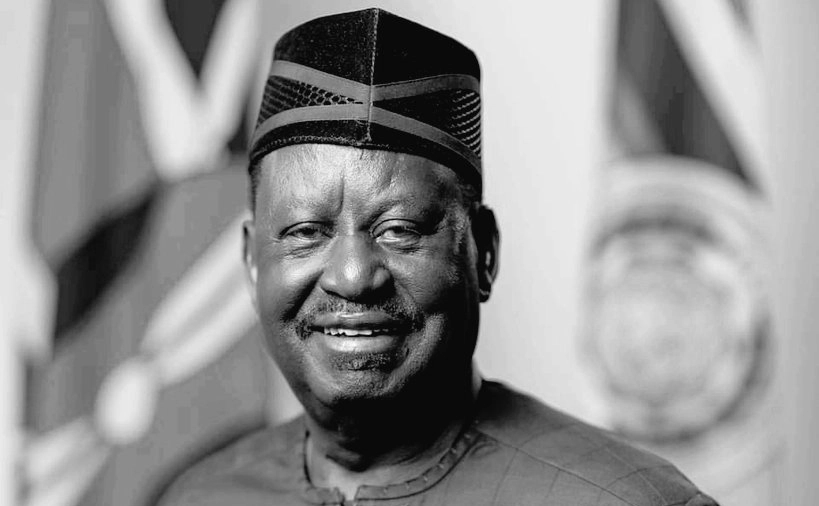Kenya and indeed Africa have lost one of their most consequential political figures, Raila Amolo Odinga, who passed away on October 15, 2025, in India. Having devoted his life to political struggle and nation-building, Raila emerged as a champion of democracy, a peacemaker, and a statesman whose vision reshaped Kenya’s political landscape and influenced Africa as a whole. From surviving imprisonment under authoritarian rule to guiding landmark constitutional reforms, mediating regional conflicts, and promoting dialogue over division, Raila’s life embodied resilience, principle, and a steadfast commitment to justice.
Born in 1945 to Kenya’s first vice president, Jaramogi Oginga Odinga, Raila inherited a profound legacy of political activism. After studying engineering in East Germany, he returned home to challenge Daniel arap Moi’s increasingly authoritarian rule. Following a failed coup in 1982, he was imprisoned without trial for six years. Undeterred, he emerged to play a pivotal role in restoring multiparty democracy in 1991—a milestone that reshaped Kenya’s political trajectory. This resilience would define his decades-long pursuit of Kenya’s highest office.
Raila ran for president five times between 1997 and 2022, with each campaign leaving a profound mark on Kenya’s democratic institutions. The disputed 2007 election, which sparked widespread violence, tested the nation’s political maturity. Raila’s willingness to compromise led to the historic 2008 power-sharing agreement and his tenure as Prime Minister. During this period, he championed the 2010 Constitution, enshrining devolution, judicial independence, and strengthened human rights protections—a legacy that remains one of Africa’s most progressive legal frameworks.
Raila’s domestic achievements and steadfast principles soon earned him respect across Africa. He mediated conflicts and championed constitutionalism throughout the continent. His 2024 bid for the African Union Commission underscored his stature as a moral authority, forged through decades of principled struggle. Even in his later years, he remained deeply engaged in peacebuilding. Appointed by President William Ruto as Kenya’s special envoy to South Sudan, Raila’s mission was to defuse escalating tensions following the house arrest of opposition leader Dr. Riek Machar in March 2025. He worked tirelessly to foster dialogue and promote a peaceful resolution.
Raila’s legacy was marked by both principle and pragmatism. Though the March 2018 ‘Handshake’ with President Uhuru Kenyatta divided opinion, it ultimately reflected his conviction that dialogue is essential to peace and stability. He also helped institutionalize legal accountability, exemplified by the 2017 Supreme Court ruling nullifying a presidential election—an unprecedented moment in African jurisprudence.
Affectionately known as “Baba” by Kenyans, Raila leaves behind a Kenya profoundly transformed—more democratic, inclusive, and accountable. Though his life was not without controversy, it reflected Africa’s timeless struggle to balance principle with pragmatism, and personal ambition with the greater national interest.
Raila Odinga may have left this world, but his spirit will never fade. To Kenyans, he was more than a leader—he was Baba, a father figure whose courage and steadfast commitment to justice gave hope to generations who dared to dream of a freer, fairer nation. To Africa, he was a statesman whose moral authority and tireless mediation reminded the continent that dialogue and principle can triumph over division and strife. To the world, he embodied the timeless struggle for democracy: a man who faced imprisonment, oppression, and political adversity, yet never wavered in his pursuit of liberty, accountability, and human dignity. Raila’s life was a testament to resilience, vision, and the power of one individual to ignite change far beyond borders.
Though he is gone, the flame of democracy he kindled, the bridges of peace he built, and the dreams of a just society he nurtured will continue to burn brightly, inspiring leaders and citizens alike to carry forward his legacy of courage, hope, and unwavering commitment to the common good.
The writer, Duop Chak Wuol, is an analyst, critical writer, and former editor-in-chief of the South Sudan News Agency. He is a graduate of the University of Colorado and focuses on geopolitics, security, and social issues in South Sudan and the broader East African region. His work has appeared in leading regional and international outlets, including AllAfrica, Radio Tamazuj, The Independent (Uganda), The Arab Weekly, The Standard (Kenya), The Chronicle (Ghana), Addis Standard (Ethiopia), and Sudan Tribune. In August 2017, the Ethiopian Broadcasting Corporation highlighted his article on Prime Minister Meles Zenawi’s role in Ethiopia’s economic transformation. He currently focuses on emerging security dynamics, including tensions over the Nile waters and foreign involvement in conflicts in South Sudan and Sudan. He can be reached at duop282@gmail.com.




